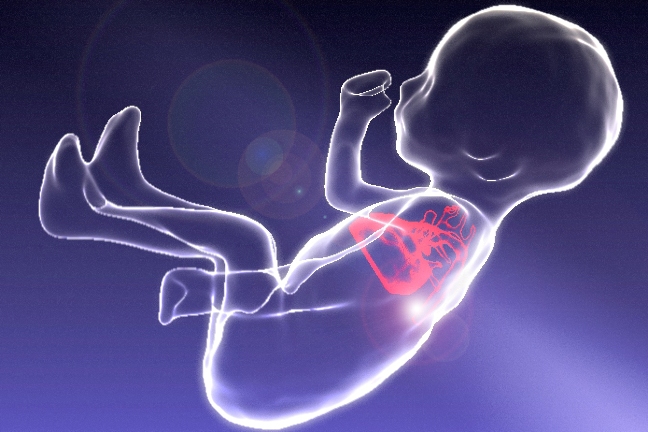Mississippi soon could have a law in place to protect unborn babies from abortion once their heartbeats are detectable.
On Monday, the state House passed the heartbeat bill (Senate Bill 2116) with amendments, the AP reports. The state Senate passed the bill in February, but senators must vote on the newly amended bill before it can go to Gov. Phil Bryant’s desk. Bryant said he will sign the legislation.
If enacted, the bill would ban almost all abortions in the state. An unborn baby’s heartbeat is detectable at about six weeks of pregnancy, though research suggests a baby’s heartbeat may begin as early as 18 days after conception. The bill would allow exceptions for medical emergencies.
The bill passed with bipartisan support, but some lawmakers expressed concerns about an expensive legal challenge, according to the Clarion Ledger.
Several opponents pointed to a court decision that blocked Mississippi’s 15-week abortion ban in 2018, but supporters argued that the heartbeat bill could be successful now that there is a conservative majority on the U.S. Supreme Court.
The high court “may swing in a very different direction now,” said state Sen. Joey Fillingane, sponsor of the bill, last month.
Click here to sign up for pro-life news alerts from LifeNews.com
Mississippi Center for Public Policy, which supports the legislation, previously noted how many mothers choose life after hearing their baby’s heartbeat for the first time at a pregnancy center.
“The heartbeat bill only reinforces what medical science has known all along, a heartbeat is not only an indication of a viable pregnancy, it is intrinsically bonded with life,” the pro-life group wrote on its blog. “It is with hope that we witness life beginning to win and it is with pride that we know Mississippi is a pioneer of the movement to value every heartbeat.”
Heartbeat bills also have been introduced in a number of other states this winter, including in Florida, Georgia, Kentucky, Ohio, South Carolina, Tennessee and Texas.
The goal of the legislation is to prevent the deaths of thousands of unborn babies every year. However, even some pro-life advocates admit that the success of the legislation is uncertain. While the rationale behind the law is noble, a number of pro-life leaders recognize that, for the present, such laws may create unintended consequences that could hamper the pro-life cause. When courts rule against such laws, state taxpayers often are forced to reimburse pro-abortion groups for their legal fees.
North Dakota and Arkansas passed heartbeat bills several years ago, but federal courts struck down both laws. In January, a judge also declared Iowa’s heartbeat law unconstitutional.
The Eighth Circuit Court of Appeals said the following about its ruling on the six-week ban: “Because there is no genuine dispute that (North Dakota’s law) generally prohibits abortions before viability — as the Supreme Court has defined that concept — and because we are bound by Supreme Court precedent holding that states may not prohibit pre-viability abortions, we must affirm the district court’s grant of summary judgment to the plaintiffs.”
There is more hope that the U.S. Supreme Court may consider an abortion ban, but it is difficult to say if it would for certain – especially after Chief Justice John Roberts recently sided with the liberal justices on an abortion case.








